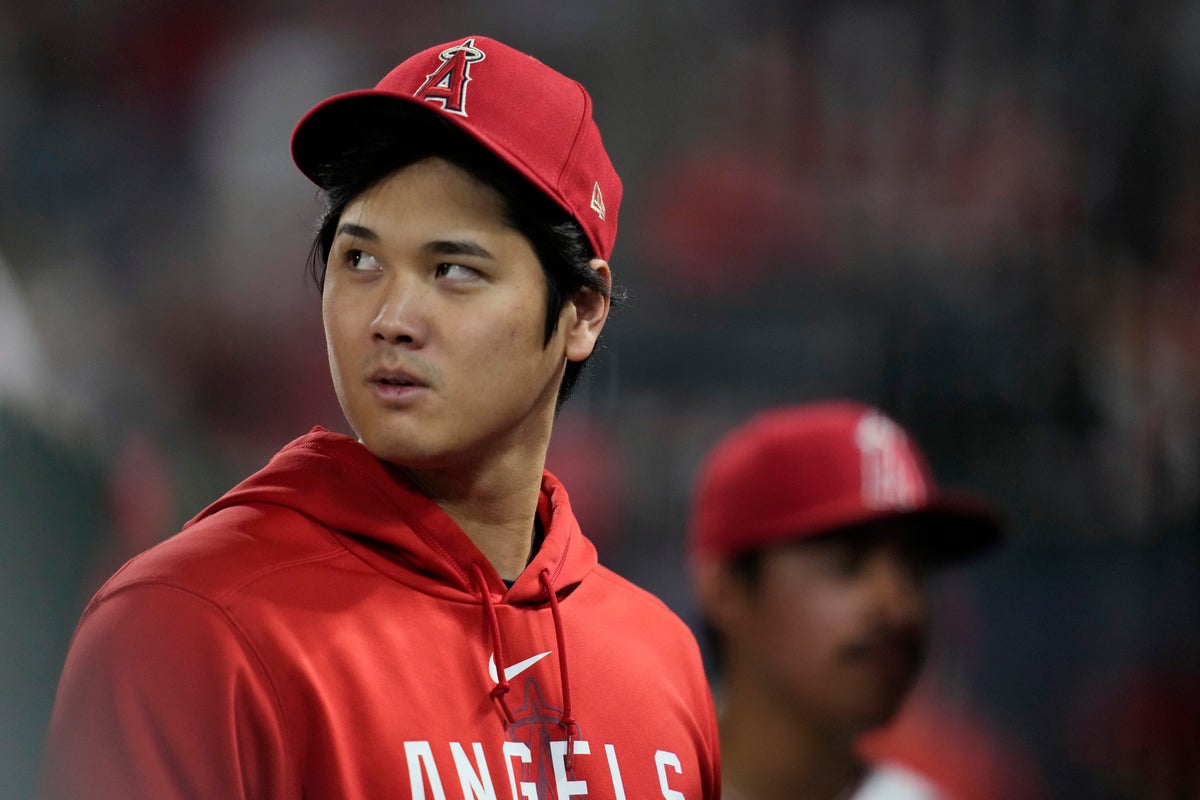
The universal designated hitter has been part of Major League Baseball for two full seasons and, much to the chagrin of some National League traditionalists, the sport has survived and even thrived.
In a somewhat surprising development, though, many teams are struggling to get much production from that spot.
The next generation of big-bopping DHs like David Ortiz, Edgar Martinez and Frank Thomas hasn't materialized, with just three players logging at least 110 games at designated hitter during the 2023 season. That trio includes Angels two-way star Shohei Ohtani, Braves slugger Marcell Ozuna and the Nationals' Joey Meneses.
The general consensus at this week's general managers' meetings in Scottsdale, Arizona, is that filling the position — and getting production from it — is harder than it looks.
The American League has had the DH since 1973, while the National League made the full-time switch in 2022. The NL also used the DH in 2020 during the COVID-19 shortened season.
“Most hitters that you encounter don't like to DH," Mariners general manager Jerry Dipoto said. "It's an acquired taste. Most would prefer to play a position and not just wait to hit every two or three innings. And I get why — you want to stay active, you want to move around, feel like you're part of the game.”
Instead of having one dedicated DH for the majority of the season, most MLB teams seem content to have several, cycling players through who might need rest or are nursing an injury.
A whopping 13 of MLB's 30 teams received production at DH that was below replacement level. The DH is unique for the widely used WAR (wins above replacement) formula because it starts with a deficit for a player providing no value in the field.
The NL champion Arizona Diamondbacks were one of the teams that struggled at DH, with a minus-1.4 WAR total, according to FanGraphs. The spot produced just a .676 OPS during the 162-game regular season, which was well below the team's overall mark of .730.
D-backs GM Mike Hazen agreed he'd like to see more production at DH, but said there are other ways to use the rule that WAR can't completely quantify.
“If you're rotating your fourth outfielder through the DH spot, or one of your primary center fielders through the DH spot to give them a day off, that's what we're using it for now,” Hazen said.
“We'll probably still keep doing that because there's value in keeping guys fresh and healthy."
San Francisco Giants president of baseball operations Farhan Zaidi said he would love to have an Ortiz-type player in the DH slot, but it's hard to find that sort of hitter. Ortiz is considered the gold standard, making the Hall of Fame in 2022 after clubbing 541 homers, including 485 as a DH.
The Giants used 10 designated hitters in 2023.
“I think when you get elite, elite hitters that don't have a home defensively, you're willing to pay the price of not having that spot to rotate guys through,” Zaidi said. “But that's a relatively small group of players."
Zaidi's point about roster construction is also important, because teams usually carry just 13 or 14 position players. That doesn't leave much room for a player who's not useful in the field.
“I know for us in development, no matter how good a player is offensively, you're always going to look for a home for them defensively,” Zaidi said. “We don't want a player anchored to that spot, certainly early in their career.”
There are a few hitters in this year's free-agent class who could be candidates for a full-time DH role. Rhys Hoskins has a homer-hitting track record and is returning from ACL surgery. J.D. Martinez, Jorge Soler and Teoscar Hernández are other examples of power bats with middling defensive value who are looking for a home.
The Milwaukee Brewers are among the teams that could use an upgrade at DH. They were the worst team in baseball with a minus-1.6 WAR at that spot.
“I'm not sure there are a lot of David Ortizes out there,” Brewers GM Matt Arnold said. “But we're certainly looking for the next one.”







